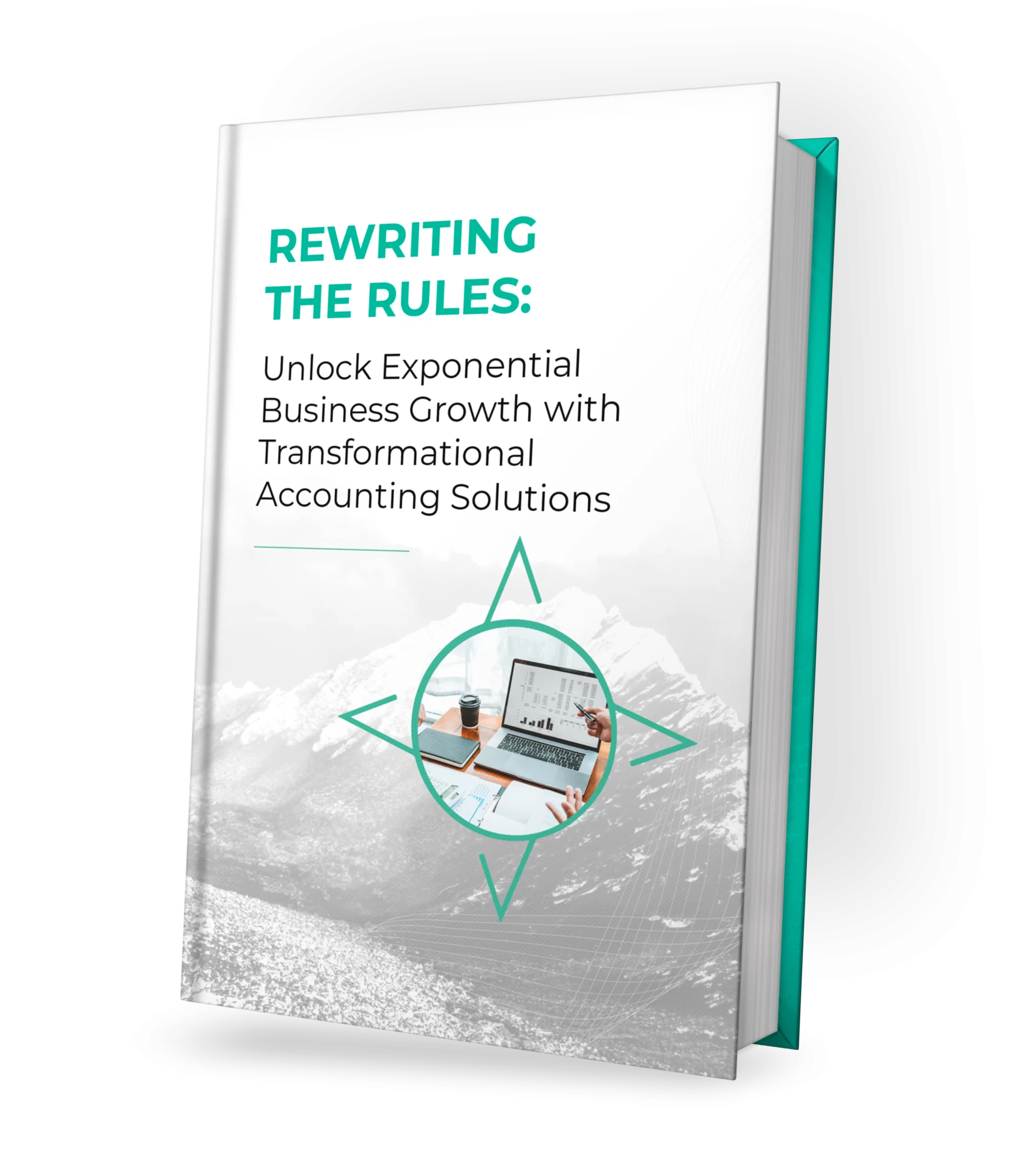Everyone has likely heard claims about AI revolutionizing accounting. While technology companies promise fully automated “AI accountants,” the reality is more nuanced. Today’s AI accounting technologies offer powerful tools to streamline financial processes, but they’re not yet ready to replace human judgment and expertise. This guide will help you understand how to leverage AI-enhanced accounting solutions to save time, reduce costs, and gain better financial insights—all while avoiding the pitfalls of over-reliance on automation.
Table of Contents
- The Current State of AI in Accounting
- Practical AI Applications for Your Business
- Why Human Accountants Remain Essential
- Finding the Right Technology-Forward Accounting Partner
- Implementation Recommendations for Business Owners
- Measuring the ROI of AI-Enhanced Accounting
- Conclusion
The Current State of AI in Accounting
The term “AI accountant” suggests a fully autonomous system that handles all your financial needs without human intervention. The truth? We’re not there yet. Current AI accounting tools excel (see what we did there?) at specific, well-defined tasks but lack the judgment, contextual understanding, and professional skepticism that experienced accountants bring to work every day.
What does exist today are powerful AI-enhanced tools that can dramatically improve accounting efficiency when paired with human oversight. According to Forbes, 70% of accountants believe AI offers benefits to the profession—not by replacing humans but by enabling them to deliver better service.
For you as a business owner, this means you should approach AI accounting solutions as enhancements to human expertise, not replacements for it. The goal isn’t to eliminate your accounting team or external firm but to help them work more efficiently and provide you with better insights.
Practical AI Applications for Your Business
Several AI-powered accounting applications deliver immediate, practical value for businesses of all sizes:
Accounts Payable Automation with AI Accounting Technology
Manual bill processing is expensive and error-prone. AI-enhanced Accounts Payable automation can:
- Extract data from invoices without manual entry
- Match bills to purchase orders automatically
- Flag duplicate payments before they happen
- Route approvals to the right employee based on your business rules
- Process payments according to optimal timing
Implementing Accounts Payable automation can reduce processing costs by up to 60-80% while virtually eliminating payment errors.
Accounts Receivable Improvement with AI Accounting Technology
Cash flow is the lifeblood of your business. AI tools can enhance your Accounts Receivable and collection process by:
- Automatically drafting invoices on a set schedule and sending to clients
- Embedding payment methods directly in to invoices and connecting to your accounting system for seamless reconciliation
- Automatically sending personalized payment reminders
- Predicting which invoices have risk of non-collection early on
- Identifying patterns in payment behavior to improve terms
Businesses implementing AI-enhanced Accounts Receivable can reduce days sales outstanding (DSO) by 10-30%.
Expense Management Simplification with AI Accounting Technology
Managing employee expenses consumes considerable time and creates friction. Modern AI-based expense systems:
- Automatically match receipts through pictures taken via mobile photos
- Categorize expenses without manual input
- Flag policy violations before submission and notify employees to self-correct
- Reconcile card statements automatically
- Provide real-time visibility into spending patterns
These systems typically reduce expense processing costs while improving policy compliance.
Financial Data Analysis in AI Accounting Technology
Making informed business decisions requires good data. AI analysis tools can:
- Identify spending patterns and anomalies
- Highlight profitability trends by product, service, or customer
- Flag unusual transactions that warrant investigation
- Create financial forecasts based on historical patterns
- Compare your performance to industry benchmarks
Better financial analysis leads to more informed decisions about pricing, resource allocation, and growth strategies.
Why Human Accountants Remain Essential
While these AI applications deliver substantial value, they cannot replace the critical functions that human accountants provide:
Interpretation and Context: AI can tell you what happened but struggles to explain why it matters to your specific business situation. It also struggles to determine what is important to focus on and improve in your business.
Strategic Guidance: Technology cannot understand your business goals and help align financial strategies accordingly. It can not decide your priorities for you.
Professional Judgment: Complex accounting questions often require nuanced judgment that AI cannot provide.
Relationship Management: AI cannot represent your business to lenders, investors, or tax authorities although it can help your prepare and stay organized.
Accountability: Human professionals carry ethical and legal responsibilities that AI systems do not.
As a recent study from Airbase notes, accounting AI tools are excellent at processing data but fall short when tasked with interpretation and strategic recommendations—the areas where business owners typically need the most help.
Finding the Right Technology-Forward Accounting Partner
For most businesses, the optimal approach is partnering with accounting professionals who effectively leverage technology. Here’s what to look for:
Ask About Specific Technologies: Rather than probing general claims about being “tech-savvy,” ask which specific tools they use and how these technologies benefit their clients.
Focus on Outcomes, Not Just Efficiency: The right partner should explain how technology helps them provide better insights, not just process transactions faster.
Request Examples: Ask for specific examples of how they’ve used technology to solve problems similar to yours.
Evaluate Their Advisory Capabilities: Technology should free your accountant to provide more strategic advice, not less. Ask how they translate data into actionable recommendations.
Check Integration Compatibility: Ensure their technology stack can integrate with your existing business systems.
Implementation Recommendations for Business Owners
If you’re ready to enhance your accounting function with AI tools, consider these practical steps:
- Start with a specific pain point rather than attempting companywide transformation. Choose an area with measurable impact, such as AP automation or expense management.
- Involve both finance and IT teams in solution evaluation to ensure technological compatibility and business process alignment.
- Establish clear metrics to measure success before implementation. Define what improvement looks like in quantifiable terms.
- Plan for appropriate human oversight of AI systems, particularly during the initial implementation period when systems are learning.
- Budget for proper training of staff who will work with new systems. Technology benefits disappear when people don’t know how to use it effectively.
- Create a phased implementation plan rather than attempting to transform everything at once. Success in initial projects builds momentum for broader adoption.
Measuring the ROI of AI Accounting Technology
To evaluate whether your investment in accounting technology is delivering results, track these key metrics:
Time Savings: Measure reduction in hours spent on routine accounting tasks
Error Reduction: Track decrease in reconciliation issues, duplicate payments, or compliance problems
Faster Financial Close: Monitor reduction in days required to close monthly books
Improved Cash Flow: Measure changes in days sales outstanding and days payable outstanding
Cost Reduction: Calculate direct cost savings from automation of manual processes
Better Decision Making: Though harder to quantify, track instances where improved financial insights led to better business decisions
Conclusion
As a business owner, your goal isn’t implementing accounting technology for its own sake—it’s gaining better financial control and insights while reducing administrative burden. While a fully autonomous “AI accountant” remains a future concept, today’s AI-enhanced accounting tools offer substantial practical benefits when properly implemented and paired with human expertise.
The most successful approach combines selective automation of routine tasks with human accountants who can interpret results and provide strategic guidance. By partnering with accounting professionals who effectively leverage technology while maintaining oversight of critical judgments, you can achieve the perfect balance of efficiency and insight.
Ready to explore how AI-enhanced accounting can benefit your business? Contact Us to discuss how our modern accounting approach can help you implement the right technologies to support your specific business needs.

